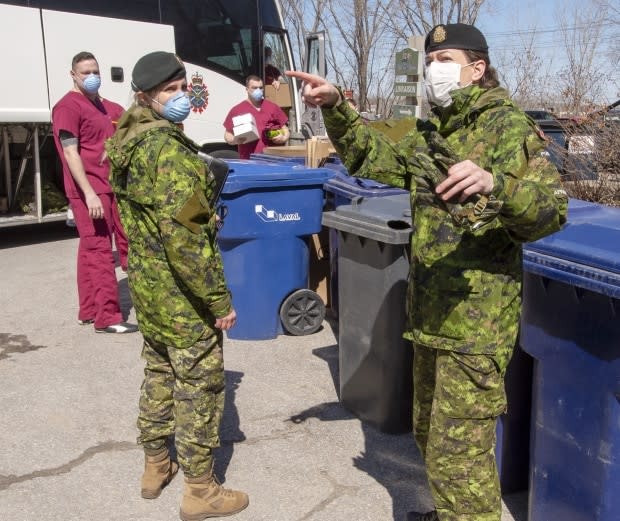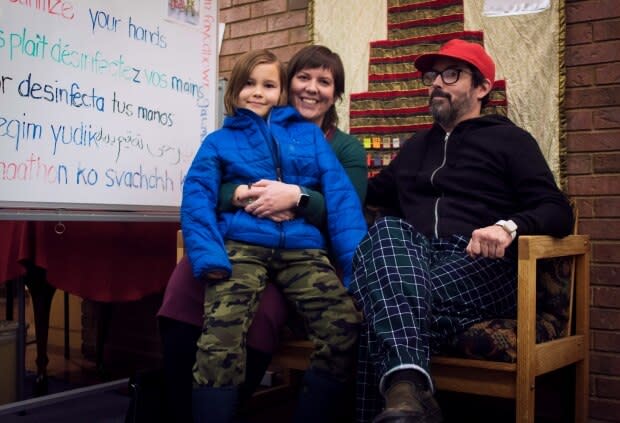Ontario long-term-care homes could face brutal 2nd wave of COVID-19, doctor warns
As COVID-19 cases shoot up in Ontario, a geriatrician says the province is poised to repeat its first-wave mistakes in the long-term care sector.
"We have the potential now to have a second wave that may eclipse the first," Dr. Nathan Stall, who works at Toronto's Mount Sinai Hospital, told CBC Toronto.
The first few months of the pandemic saw the virus rip into vulnerable long-term care homes in Ontario, killing more than 1,500 residents by late May.
Though outbreaks in homes quieted in the summer months, Stall says the case numbers he's been seeing this past month remind him of that terrifying period in the spring.
"We're seeing the curve take off when it comes to resident cases … adding two, three homes a day," he said, explaining that as the novel coronavirus spreads more widely in the larger community, it inevitably makes its way into the long-term-care residences as well.
The latest numbers from the province show current outbreaks in 22 residences and 54 active cases among residents.
"We seem to have forgotten about the sector yet again," said Stall. "We are seeing early warning signs now."
Staffing issues persist, association says
While some lessons from the first wave will carry over — including the importance of access to personal protective equipment and a better understanding of transmission — Stall says staffing ratios remain "woefully inadequate."
Donna Duncan, the CEO of the Ontario Long-term Care Association, agrees.
The association has been calling for work to begin on a "Wave 2 Action Plan" since late July, putting out a list of demands for the province, including continuing "staffing flexibility" and the hiring of "an army of Infection Prevention and Control Specialists."
"We've got to make sure it never happens again," said Duncan in a CBC Ottawa interview this week, referring to the outbreaks in the spring.
"We need to make sure we're prepared to put the same amount of energy and partnerships and resources."
To address that in the first wave, personnel from other areas — including hospitals, the education sector and even the Canadian Armed Forces — were redeployed to the hardest hit homes to pitch in.

This time around, "nursing homes in Ontario have been told that hospitals may not be available to assist them in the same way as the spring," said Stall, who tweeted out a letter from Long-term Care Deputy Minister Richard Steele warning that hospital resources would be "more scarce."
Stall says the best way to address chronic understaffing is to accelerate the training of personal support workers and improve the conditions for current staff, including by offering full-time, stable jobs, career-growth prospects, and sick pay.
"Homes are understaffed, a lot of the pandemic pay they received before has dried up, and funding is being spent in a lot of other places," he said.
'She won't survive'
For the families and loved ones of long-term care residents, the prospect of a return to anything like what Ontario experienced in the spring is horrifying.
Susan Mills, whose mother Barbara is a resident of The Grove in Arnprior, Ont., says she's afraid of what the fall could bring.
"I've seen the decline of six months. I went down every day at the window, so I watched her decline," said Mills, who is her mother's caregiver and often visits to help her eat.
"If there is another lockout, she won't survive. She has deteriorated considerably."

Melissa Acheson's partner, Shawn Hill, contracted COVID-19 while living at Ottawa's West End Villa home. Forty-seven residents there have tested positive so far, according to the home's operator, Extendicare.
'It kind of got to this point where I felt like the virus is on its way out, things are reopening, kids are going back to school, everything is going to be okay," Acheson told CBC Ottawa.
"But as soon as we let our guards down ... it's just back with a vengeance. So yeah, I would say it's pretty scary to think about."
Province says it will apply lessons from 1st wave
In a response to CBC Toronto, a spokesperson from the Ministry of Long-term Care wrote that there will still be ways for hospitals and their staff to support the homes.
Hospitals will share expertise on infection prevention and control, the statement reads, and health professionals from hospitals can be deployed to homes seeing "critical staffing shortages."
The spokesperson also said that the province is committed to applying lessons learned in the first wave of the pandemic, and that testing of staff and symptomatic residents will continue.
"To shore up our staffing supply, we have taken significant action to increase flexibility and funding, including issuing emergency orders, introducing amended regulations, and committing $243 million in emergency funding for staffing, supplies, and capacity."


